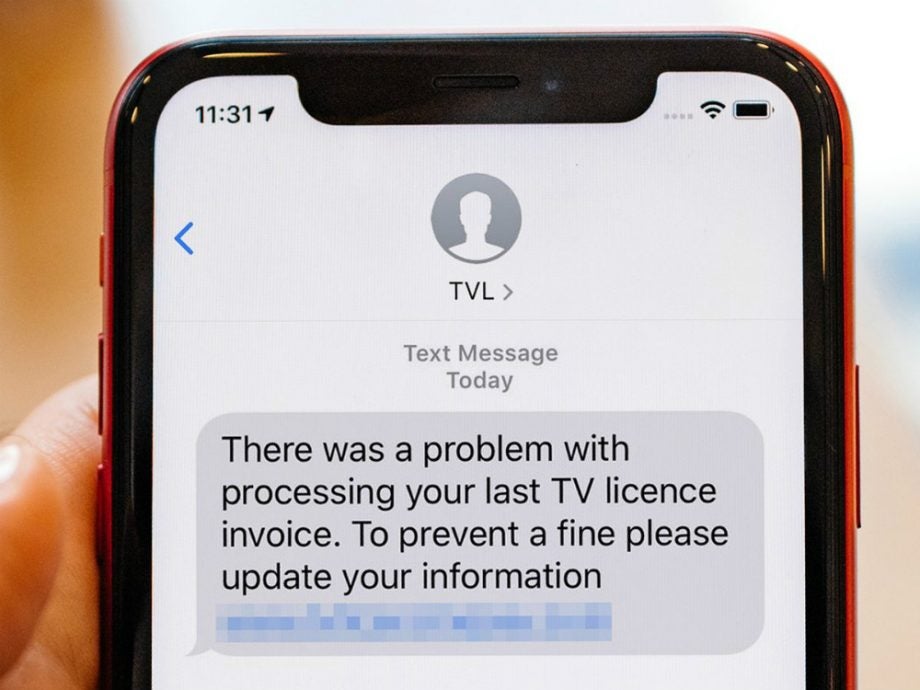This scarily convincing TV License scam just isn’t going away

Members of the public are being targeted by cybercriminals sending out fake but convincing-looking TV License renewal messages.
People are being targeted via email and text and, over recent weeks, Action Fraud has issued multiple warnings about the scam. The official TV Licensing website, meanwhile, is assuring concerned visitors that an investigation is underway.
Read more: Best smartphone
“Some customers are receiving scam email messages saying they are due a refund or need to keep up their payments. A link directs customers to a fake version of the official TV Licensing website which asks them to enter personal information and bank details,” a warning message on the site reads.
“If you receive a similar email message, please delete it. If you have already clicked the link, do not enter or submit any information.”
A separate warning on the TV Licensing site reads: “A small number of our customers have received text messages which says there’s a problem with their Direct Debit.
“It asks them to set up a new payment plan or risk facing a £200 fine. The link in the text directs customers to a fake version of the official TV Licensing website which asks them to enter personal information and bank details.”
Anyone who thinks they’ve been duped by a fake message is being encouraged to report it to the Action Fraud Helpline or by calling 0300 123 2040.
However, if you think you’ve submitted any of your card details to a malicious version of the TV Licensing site, you should get in touch with your bank as soon as possible.
⚠️ Alert: Fake @tvlicensing emails are still doing the rounds! ? We've had over 1,785 #phishing reports in November alone. #PhishyFridays pic.twitter.com/9S65nZ6LSu
— Action Fraud (@actionfrauduk) December 7, 2018
According to Action Fraud, it received more than 1785 reports about fake TV Licensing messages in November alone. It received 2685 reports about the same issue in September and October.
“Although all the emails are different in style, they all lead to the same website which is being hosted on different domains. The emails claim that TV Licencing has been trying to contact customers regarding the payment of a bill or a change to their personal information,” Action Fraud warned back in October.
“The fraudulent website will prompt victims to add their payment details, including the Card Verification Value (CVV) code on the back of their card, account number and sort code. With this information, fraudsters could drain bank accounts and commit identity fraud.
Read more: Best VPN
“It may also ask for the victim’s name, date of birth, address, phone number, email and even mother’s maiden name which suggests fraudsters will try to access other online accounts.”
TV Licensing, meanwhile, has published the following tips that should help you spot a scam email:
Never answer an unsolicited email from TV Licensing − the organisation will never email you, unprompted, to tell you that you’re entitled to a refund or ask for bank details/personal information.
Check the email contains your name – TV licensing will always include your name in any emails they send you.
Check the email subject line − anything along the lines of “Action required”, “Security Alert”, “System Upgrade”, “There is a secure message waiting for you”, and so on, should be treated as suspect.
Check the email address − does the email address look like one that TV Licensing use? For example donotreply@tvlicensing.co.uk. Look closely as often the address may be similar.
Check for a change in style − often the scammers will take the real emails and amend them. Look out for changes in the wording used, especially if it seems too casual or familiar.
Check for spelling and grammar − are there any spelling mistakes, missing full stops or other grammatical errors?
Check the links go to the TV Licensing website − hover over the links in the email to see their destination and check the web address carefully. If you are not sure, go directly to the TV Licensing website.
Have you been targeted by a similar scam? How did you protect yourself?


